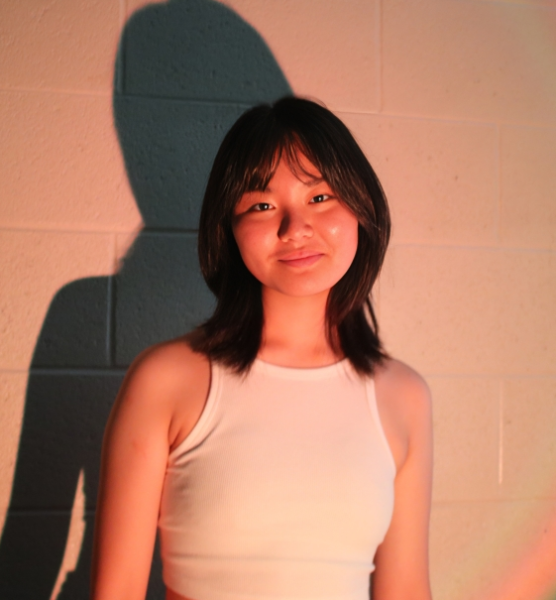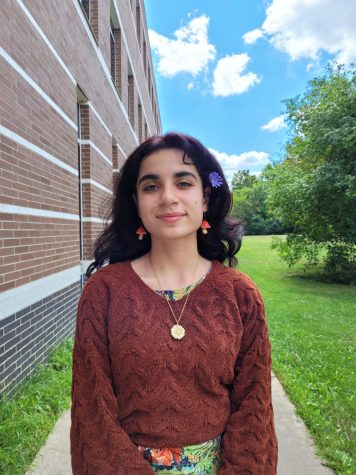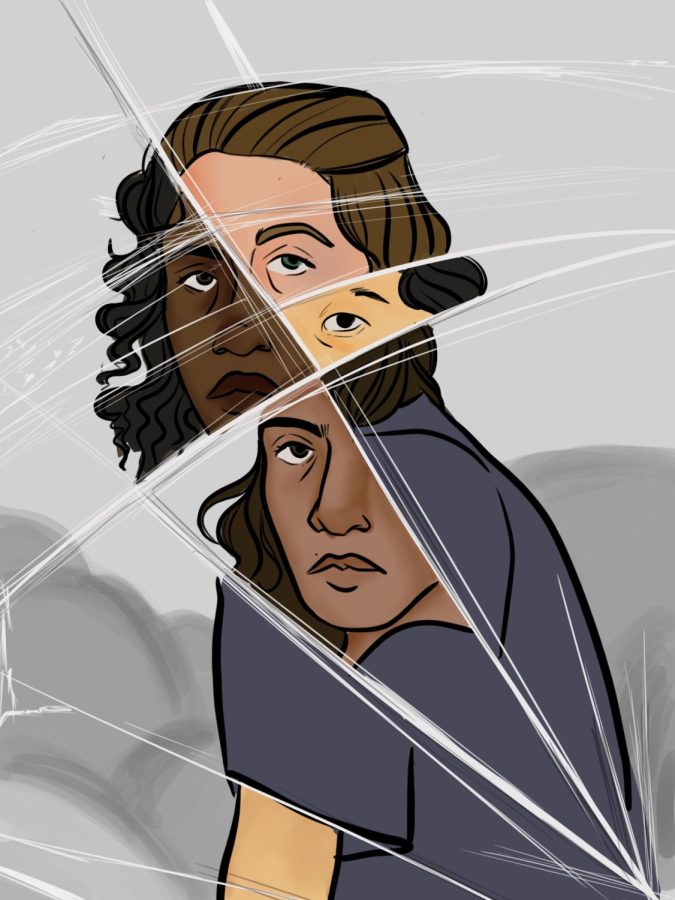It’s More Than a Joke
The effects self-deprecating racism has on the Troy High School community.
Troy High School is a very diverse building, with many different ethnicities in one location. According to the US News, the minority enrollment of the school is 56.1 percent, meaning the majority of the students are people of color. Despite being a minority-majority school, Troy High can’t avoid the grasp of racism. Self-deprecation, as defined by Merriam-Webster, is to “undervalue oneself”. Self-deprecation can be used in many ways, one of which is racism. This happens when a person of color undervalues not themselves, but their own ethnicity or race. But what effect does this different form of racism truly have on students at Troy High School?
Senior Samina Abedi, a Muslim student, shares her experiences with self-deprecating racism.
“In my family, we sometimes make jokes about being Muslim,” she said, “But usually when people make those jokes that are non-Muslim or not part of the culture, then it’s a little weird. They don’t understand the struggles that we go through as a community and they don’t know how to relate to it. They’re just making fun of it.”
Shriya Kankatala, an Indian American Student Association board member, explains her perspective on self-deprecating racism.
“I don’t think I have ever self-deprecated because of my race, but I do hear a lot of people going around and bringing down their own race,” she says, “It’s usually as a joke but there’s a fine line between joking, and actually meaning it.”
Though this popular form of racism can be seemingly harmless, it can also be used in a negative light. An example can be people not of the ethnicity or race making the self-deprecating jokes they heard their friends make with the belief that they are allowed to do so.
Kankatala states her opinion on these beliefs and actions people may take.
“I don’t think I’ve personally experienced where other people have joined in, but I think I’ve seen it happen before. People think it’s okay because they see other people doing it so they’re like ‘because they’re doing it we can do it too’. They justify it like that to themselves.”
Abedi gives her explanation of why people may use self-deprecating racism, whether or not you’re part of the culture.
“I feel like it could be a way of coping with the struggles of the community and what you’re going through. But if you’re not part of the community then like it’s very detrimental to making progress.”
Regardless of race and ethnicity, many people tend to have different boundaries of respect that they believe should be maintained no matter the strength of the relationship.
Sangeun Jeong, the Vice President of Japanese Club, shares his opinions on how respecting others including close friends is important.
“We’re inside our own group of friends and we know what we’re saying is an inside joke… but it gets to a point where it’s not an inside joke, and it just feels like blatant racism.”
This brings up the question of whether diversity affects the amount of racism within schools, and whether self-deprecating racism falls into the same category.
Kankatala talks about Troy High School as a community and how her race has affected her place within it.
“In the school, I would say that Troy High is a pretty accepting community ‘cause there’s so many different cultures and races here, so I’ve never experienced being put down because of my race but also my experiences might be very different than someone else’s. It also depends on who you hang out with. I think a lot of people also hang out within their own ethnicities.”
Differences in experiences can heavily impact opinions people may have of the overall community this school has to offer.
Contrasting to Kankatala’s experiences, Abedi shares things that happen within the school that can be hurtful to people, specifically Muslims.
“You hear it in the halls, people saying ‘allahu akbar’ jokingly but it’s not funny because they don’t know what they’re saying. They don’t understand the significance.”
More issues arise when people of color who identify more closely with white people, or “white-washed” people of color use self-deprecating racism to hurt people of their ethnicity.
Abedi gives her own definition of what whitewashing is and her thoughts on it.
“It’s like being forcibly assimilated to a culture you’re not a part of so like it’s usually the white culture that they’re trying to enforce. You’re being made to conform when you don’t want to.”
Jeong states his point of view and what he thinks of the issues with racism from white-washed people of color directed at people of the same ethnicity or race.
“I don’t wanna pick sides like ‘oh you’re one of us or you’re one of them but like it’s just not cool at all. Like racism in itself is not cool, and the fact that you’re basically doing it to your own race is even worse.”
Abedi gives her own perspective on racism as a whole and gives advice to those who may be users of self-deprecating racism.
“Just be respectful, respect people’s boundaries and be mindful of what you say cause you never know what people will interpret it as.”
Your donation will support the student journalists of Troy High School - MI. Your contribution will allow us to print our work, purchase equipment and cover our annual website hosting costs.



